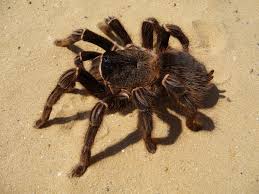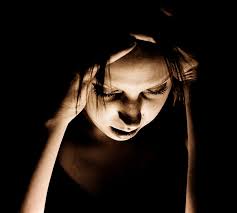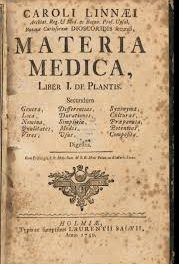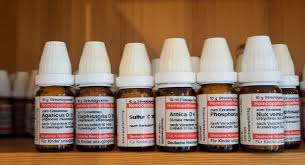By J.L. Jennings, M.D. Danville, Va.
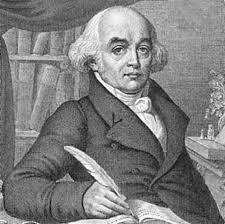
It has been often stated that the homoeopathic physician is not an all round physician, that his Alma Mater did not infuse into him all the knowledge that was essential to make a competent physician, that drug action and symptomatology was taught to the exclusion for other just as important branches of medical science, viz., anatomy, histology, physiology, pathology, bacteriology and such.
We will have to admit that in the beginning of things homoeopathic that the discovery of the scientific law of Similia Similibus Curantur by that grand old man, Samuel Hahnemann, more than a century ago, so upset things medical that were accepted as the best science could offer that in their zest and endeavor to find the specific for all diseases they were somewhat over-zealous in certain lines than in others; but to-day I will say that our homoeopathic medical colleges are abreast of the times, and recognize the importance of this knowledge, and are drilling its students in all the many different branches of medical science that pertain to a thorough medical education.
It is just as important for a physician to be a good anatomist, physiologist, bacteriologist, etc., as to be able to be a symptomatologist. Symptoms are but manifestations of disease divided into two classes: Objective, those that you see; subjective, those that the patient tells you about. All but too often we are perplexed and confused in trying to differentiate the important from the less important. Herein lies the keynote for the success in treating such cases, and wherein the homoeopathic physician has made his greatest success.
I think that the homoeopathic physician has just as much right, and it is his bounden duty as a physician, to alleviate acute suffering as quickly an safely as possible by using his hypodermic syringe. Expediency and temporary treatment in such cases demand instant remedial attention and relief, if we would hold our cases. Later, when we have accomplished our first object, we now have time to prescribe the indicated remedy and get results that would have at first been impossible.
I know I am treading upon dangerous ground, but be it as it may, I am going to relieve my patient as quickly as possible.
Do not misunderstand me and think that I carry my hypodermic syringe ready to use every time I see a patient suffering far be it from that. It is the duty of every physician to use his utmost discretion in such cases. I can conscientiously say that I have never caused a patient to become addicted to thee use of opiates or any drug-forming habit in my thirteen years of practice.
A physician to be a success must know something of human nature, must be a well balanced man, must have confidence in his ability, and last, but not least, must be able to impress himself and his ability upon his patient, thereby gaining his or her confidence before he can begin a successful treatment. One should not lose sight of the important fact that the power of suggestion or psychic influence at the psychological moment plays an important part as a remedial agent. I am sure you will agree with me, especially those of you who have practiced medicine for several years, and have had extensive dealings with the many varieties of patients.
Is the trend of the homoeopthic medical college of to-day towards a practical, scientific and useful physician, or towards an over-educated, impractical and theoretical doctor, or shall the purpose of our medical colleges be to aim and cut down the number of doctors?
Our friends of the dominant school say that the profession is over-crowded. Is the statement strictly true? Yes and no. The allopathic school is over-crowded, while in the homoeopathic school there is a tremendous dearth of new blood. The demand exceeds the supply.
When I say the demand exceeds the supply it is no Utopian dream but a most potent fact. It is a well known fact that whenever you find a homoeopathic physician you will find a successful physician, both financially and as a curative agent. Every college of our school is deluged with inquiries for young homoeopathic doctors. These inquiries come in good faith and must be satisfied.
Does the intensive study of the fundamentals in the practice of medicine mean neglect of the homoeopathic materia medica and the passing of that splendid school of homoeopathic internal medicists who made our school famous? I will say no. The homoeopathic materia medica is just as important a factor in the success of our school of to-day as ever, but the materia medicists must realize and recognize the important fact that there is more in the practice of medicine than the mere prescribing of the indicated remedy. At a time when the problems of medical education are disturbing the minds of many earnest educators and physicians through this broad land, it seems to me that this influential body might well consider the practical, industrious and evenly balanced physicians of the past, whose early training came from the preceptor. We are living at a time when all avocation competition is keen. Many serious problems confront us.
I am firmly convinced that the place of the preceptor in our medical curriculum should be restored and that instead of an increase in our college course time credit should be given for one year at least after the medical student has spent a specified time in the office and with a practitioner of much experience.
Many a young doctor hungering after the glamour of notoriety has been side-tracked by that “will-o’-the –wisp,” American Medical Association, which has led so many of our good homoeopathic physicians astray, who, if he were guided by a preceptor, would be influenced in the right direction, and would land in the American Institute of Homoeopathy where he can get all that is best in the practice of medicine. He would remain a permanent fixture and a useful member in the up-building of our school.
Friends, a great move has now been made by the American Institute of Homoeopathy towards the unifying and placing our school in a stronger position by the inauguration of a propagandistic work that is bound to lead ultimately to success. Let us make practical young men and women physicians, and hold on to them. Give them a thorough, practical course, both didactic and laboratory, in chemistry, physiology, anatomy, histology, pathology, embryology and bacteriology, but drill them throughout the entire course from the day they enter college till their exit in the materia medica. Demonstrate the curative action of drugs in the clinic, in the hospital and by the bedside, prove the action of drugs upon their own person, if possible, and then you will turn out thorough homoeopathic physicians. The homoeopathic school of medicine is fully abreast of the times, is pushing ahead everywhere.
To-day is ours, but to-morrow may belong to the man being. We must keep active and vigilant: activity does not tire, gives resting power, develops the mind, teaches one to stay when the tussle is on. Ambition sharpens the intellect, fertilizes the brain and some day results will grow out of it.
We must look to the proper education of our young men and women. The time may come when we shall need their loyalty to our school as badly as the Mexican bandit needs his colt. He left it at home but his competitor could not overlook it. Our competitors are watching and waiting, they are seeking an opportunity to legislate to out disadvantage, not willing to leave it to the test at the hospital and bedside. We will have to rely for our survival upon the fidelity and loyalty to our school of the young men and women graduates of to-day.
We cannot survive long if we have not earned it. We must perpetuate an increase. The great forces of our lands are dying out because there is not a constant growth of saplings, they can only be perpetuated by the seeds, which drop from the grown trees, and so it is in life. The young men and women are the seeds, our colleges the trees, its teachings, if conscientious, will bear fruit. They will be our insurance against the future, they are the timber of to-morrow. You may not need them now, but as the years roll on and your powers fail and you can no longer stand the strain because of declining-years the sill and knowledge and the confidence which you have instilled withing them will protect your past efforts and warrant the continuance of prosperity for the future.
Hold on to your boys and girls, they are valuable to you. You have a need for them that they may continue the fight which you have so gloriously waged in the past. Teach the young doctor drug action by drug proving; do it in the college, there is no better time and place. It may be permanently fixed in them, there is no better training for them in materia medica while they are storing their minds with useful knowledge. They are obtaining something of permanent value to themselves and their fellowman.
The allopathic school has no such priceless heritage as our materia medica, but content themselves by concentrating on diagnosis, pathology and surgery. On diagnosis they are very proficient. Ours is a school of therapeutic specialists, we must concentrate our materia medica, making its study less difficult, eliminate the less important symptoms and be able to select the indicated remedy more easily; however, not to the neglect of the other important branches of medical science. Christian Science, Divine science and the Emmanuel movement are perfectly normal and sane; re-actions of over-medication are already leading the thinking physician to a careful investigation into the fields of psychic research. The homoeopathic physician has used this for a century. What do we mean by mental symptoms, if they are not manifestations of the psychic? The whole fabric of our symptoms of therapeutics would fall down were we to ignore mental symptoms are expunge them from our strictly scientific materia medica. We must teach them to retest old drugs under strictly scientific supervision and start the new one correctly in life. This is strictly our function as a separate school of medicine. The data thus collected will be useful when the “Pyramids of Egypt” will have crumbled into dust, and the Panama Canal looked upon as a curio of an ancient race. All honor to the men of the Institute Committee on Drug Proving, who are devoting so much of their valuable time, every and money to this most beneficent therapeutic research.
Our future doctors should possess a strong mental grip, a capacity for hard work, intellectual power and a high aim. This should bring forth capacity for large financial returns, enjoyment and an honorable life. The main achievement of college life is to obtain mental force, sustain through and reasoning power.
Nothing that I have said should be construed to mean conflict with our brothers of the dominant school. Our young men and women graduates should know the best that is in medicine and from competent teachers. We should invite a study of our system of medicine and open our eyes to whatever cures human ailments or alleviates suffering or in any way may add to the sum total to human happiness, always remembering that all symptoms in every line are making for never and better methods to heal mortal man.

